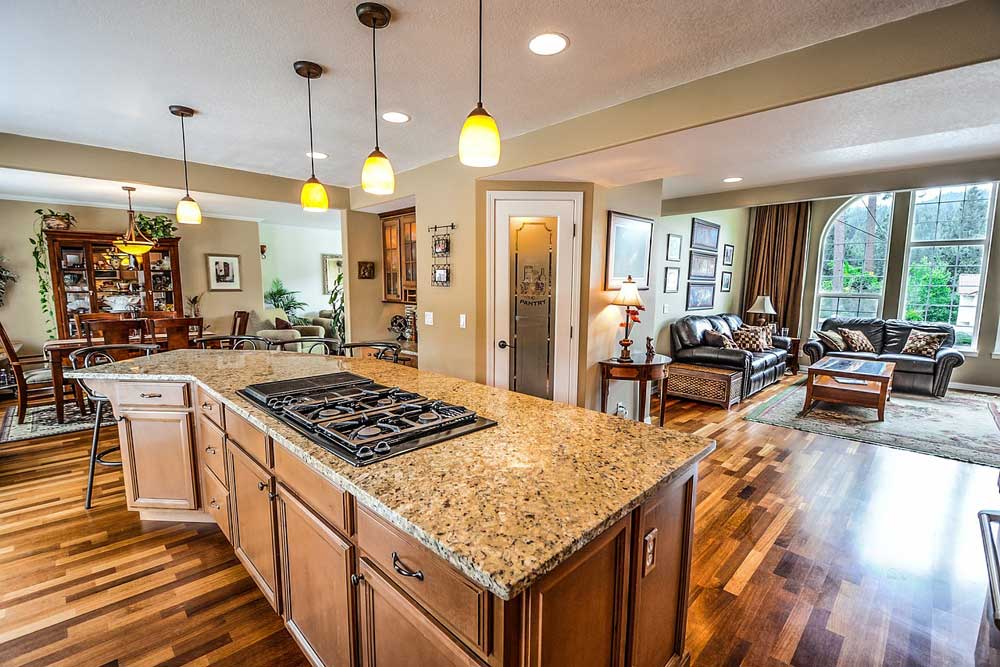
Marble has been a symbol of luxury and grandeur since ancient times. Should this stately substance be your kitchen benchtop choice – or should you consider other factors? Are the challenges of marble worth the benefits? If you’ve ever wondered what goes into making the decision, then this is the blog for you.
Today, we’ll delve into the world of marble kitchen benchtops. We’ll consider the allure of these elegant countertops, the reasons why homeowners fall in love with them and the unique challenges they represent. Ultimately, we’ll try to answer the key question: are marble kitchen benchtops the ideal choice for your home?
Whether you’re renovating your kitchen, building a new home, or just daydreaming about your ideal culinary space, it’s critical to understand the pros and cons of marble kitchen benchtops. From aesthetics to functionality, maintenance, and cost – let’s start decoding this stunning yet complex choice for your kitchen.
What Are Marble Benchtops
Marble benchtops extend beyond aesthetics, supplying a fantastically cooling surface perfect for baking. They’ve served as the first choice for many a patissier due to their naturally cool temperature. The variety of hues and veining patterns available ensures that each marble benchtop is beautifully unique.
However, marble is not just beauty and coolness. It is also a porous rock, meaning it can absorb liquids if not adequately sealed. This makes it somewhat high maintenance, as it needs regular sealing to maintain its glory.
Despite the small amount of upkeep, a well-maintained marble kitchen benchtop can be the highlight of a home, instantly catching the eye and creating a sophisticated ambiance.
The Aesthetics of Marble Benchtops
Yo can’t deny the timeless beauty of marble. Each slab has its own intricate design – a mélange of hues and veins – ensuring no two benchtops ever look the same. The splendor of marble benchtops can transform any kitchen into an artful masterpiece.
Despite the rise of modern materials, marble remains an unrivaled choice for those looking for a refined, luxurious vibe. The elegance and grandeur it adds to any kitchen design are undeniable.
However, aesthetic appeal is subjective, and not everyone prefers the polished, elegant look of marble. What counts is matching the benchtop to the overall kitchen style and personal preferences.
Durability and Longevity of Marble Benchtops
Marble, being a natural stone, is undeniably durable. With proper care, a marble top can outlast your kitchen! Yet, its porous nature can be a disadvantage, making it prone to staining and etching, especially from acidic substances.
Regular sealing and immediate cleaning of spills can greatly increase your marble benchtop’s lifespan. Still, if low maintenance is your top priority, other materials might be a more fitting choice.
While marble benchtops require more care, many homeowners believe the potential for scratches and stains adds a certain patina and character over time. But again, this would come down to personal preference.
Marble Benchtop Costs
Marble is renowned for its hefty price tag. The cost can vary depending on the marble type, with rare patterns and colors fetching higher prices. Factor in installation costs and maintenance, and a marble benchtop can be a significant investment.
However, given the longevity and luxurious appeal of marble benchtops, many homeowners view them as an investment, contributing to the home’s value.
It’s essential, though, to weigh these costs against your budget, the marble’s upkeep, and the importance of aesthetics to you personally.
Eco-friendliness of Marble Benchtops
As a natural stone, marble is an eco-friendly option for benchtops. There are no harsh chemicals or substances involved in its production. Furthermore, if you ever decide to replace your benchtop, marble is fully biodegradable.
However, extracting and transporting marble consumes energy and contributes to carbon emissions, so it’s a bit of a double-edged sword from an environmental perspective. Also, because sealing is a must for marble benchtops, consider the chemicals used and their effects on indoor air quality.
Conclusion
Marble kitchen benchtops, with their undeniable charm and elegance, certainly add a wow factor to any kitchen. Their naturally cool surface, inherent beauty, and uniqueness are tempting to many homeowners. But the love for marble should also encompass its high maintenance nature, susceptibility to staining and etching, and the higher costs involved.
Ultimately, the decision hinges on how much you value aesthetics versus practicality, the budget you’re working with, and your tolerance for maintenance. Marble kitchen benchtops are not for everyone, but to many, they remain the epitome of luxury and elegance worth every bit of extra care.




